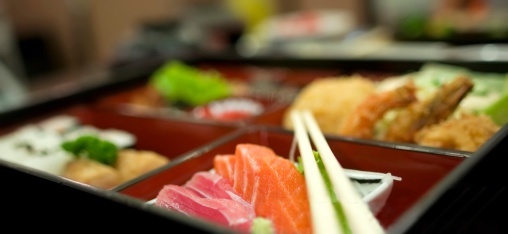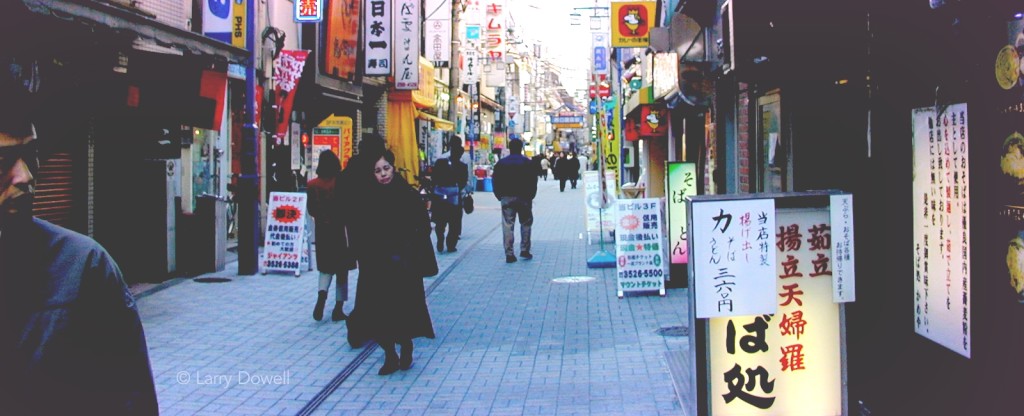A few years ago, I got the opportunity to make my first trip to Tokyo. The big concern that everyone seemed to have about going to Japan was in understanding the cultural differences. I studied the suggested cultural guidelines as much as I could in the short time before the trip. I even learned a few courtesy phrases in Japanese.
As always, reality negates assumptions. Once I arrived in Tokyo, I discovered the culture was very similar to Southern politeness and graciousness. Almost everyone I interacted with was courteous, framing everything they said with ‘please’ and ‘thank you’. Social events were centered around food, another very Southern habit.
My least concern before the trip had been eating in Japan as a vegetarian. I envisioned all the vegetable noodle dishes, stir-fries and tempura I would be savoring. I would be experiencing the real thing, not a restaurant chain’s Americanized interpretation of Japanese food.
Again, reality destroyed all assumptions. My business associates wanted to treat me to a special dinner at a select restaurant. When we arrived, I picked up the menu to study the vegetable delicacies. My hosts interrupted me.
“No, no, we will treat you to a special dinner.”
“Thank you, that would be very gracious of you. But I am a vegetarian.”
“Yes, yes, we will order the dinner.”
When the waiter arrived, he set down a huge platter of sashimi, sliced bits fresh raw fish. There were forty or fifty different kinds of fish artfully arranged in an array of reds, pinks and whites.
“Please, have some.”
Thank you so much, but I’m a vegetarian.”
“Please, have some.”
“Thank you so much, but I do not eat fish.”
That was the other thing; even when I was young and still ate meat, I could never stand the taste or smell of fish.
“Please, have some sashimi.”
There was that Southern hospitality. I had grown up with it; it was ingrained in my soul. Food was the cultural connector, the gift that was given to the guest. You did not refuse that gift when it was offered.
“Yes, thank you, I will have some.”
I picked out the palest, blandest looking pieces of fish with my chopsticks, dipped and coated them with as much wasabi as I could get them to hold and swallowed them without chewing or letting them linger in my mouth.
I complimented my hosts on the excellent taste of the fish. I thanked them for the honor of dining with them and their graciousness in ordering such a generous platter of sashimi. My aversion to fish had not changed one bit, but I did not forgo my Southern heritage and refuse their hospitality.
 I had other occasions of dining with my Japanese associates; most of the times I was able to eat vegetarian dishes. I even ate at a Japanese Italian restaurant just because of the incongruity of it; the pizza was very good. We also had a working lunch at a large conference table, where they arranged for bento box lunches to be delivered to us all. They were large wooden lunch boxes, lacquered and nesting an assortment of smaller boxes, each holding its own food treat. There were bits of rice, pickled vegetables, fried vegetables, noodles, seaweed and, of course, fish. I kept the fish tucked in their little boxes and savored the other treats.
I had other occasions of dining with my Japanese associates; most of the times I was able to eat vegetarian dishes. I even ate at a Japanese Italian restaurant just because of the incongruity of it; the pizza was very good. We also had a working lunch at a large conference table, where they arranged for bento box lunches to be delivered to us all. They were large wooden lunch boxes, lacquered and nesting an assortment of smaller boxes, each holding its own food treat. There were bits of rice, pickled vegetables, fried vegetables, noodles, seaweed and, of course, fish. I kept the fish tucked in their little boxes and savored the other treats.
Throughout my visit to Tokyo, I felt right at home, for everyone, from my business associates to shopkeepers to strangers in the street, treated me with the politeness and graciousness that would make a Southerner proud.
